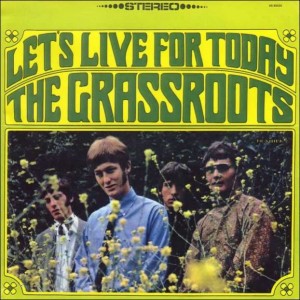One of the more common themes I brought with me out of the 60’s was, as Creed Bratton’s old Rock Group the Grass Roots put it, “Sha na na na, live for today…” While the rest of the world is worrying about tomorrow the singer  and his girl will “take pleasure while they can.” At the time of Jeremiah’s prophecy a similar culture had taken “grass roots” in Jerusalem. The people, as a whole, love to live by this philosophy, but especially so when it’s embraced by their leaders. In Israel the political leaders along with the religious leaders have ignored the truth of God’s word and God’s ways, and adopted a philosophy of pragmatic pleasure. They twisted their roles to make the best out of the moment instead of building for a solid future. The closing verses of chapter five, Jeremiah 5:30-31, put it this way, “An appalling and horrible thing has happened in the land: the prophets prophesy falsely, and the priests rule at their direction; my people love to have it so…” But Jeremiah adds a simple little question after his indictment. He asks, “…but what will you do when the end comes?”
and his girl will “take pleasure while they can.” At the time of Jeremiah’s prophecy a similar culture had taken “grass roots” in Jerusalem. The people, as a whole, love to live by this philosophy, but especially so when it’s embraced by their leaders. In Israel the political leaders along with the religious leaders have ignored the truth of God’s word and God’s ways, and adopted a philosophy of pragmatic pleasure. They twisted their roles to make the best out of the moment instead of building for a solid future. The closing verses of chapter five, Jeremiah 5:30-31, put it this way, “An appalling and horrible thing has happened in the land: the prophets prophesy falsely, and the priests rule at their direction; my people love to have it so…” But Jeremiah adds a simple little question after his indictment. He asks, “…but what will you do when the end comes?”
I like the way Arnold and Black summarize the situation for us. They write about living in “…the hopelessness of a culture going downhill. One of the clearest, most notable philosophies of television and music is the notion that we must live for today because there might not be a tomorrow. It may be that drug abuse is so high precisely because people are not able to dream about their tomorrow. A culture without God does not think too far into the future.” As the trends of western civilization led through the various philosophies of existentialism to the nihilism of Nietzsche, God is at best irrelevant and at worst He is dead. Thus there are no absolute values and there is nothing truly lasting to live for. This is diametrically opposed to the biblical truths of Christianity.
Going back to Arnold and Black they say, “In the Christian faith we know a few things with certainty upon which we place our trust. The first is that Jesus will come again. We can wait for that day because we have been promised its fulfillment. The second is that we will reign eternally with God in heaven. We will one day be rid of our trials, tribulations and pains. In the presence of God there is joy and no more pain (Rev 21). As Christians, we have something to live for. We can wake up each day knowing that God is present in our lives and that his priorities will win out. We have hope. Christians can be people of purpose and confidence, living God-centered lives filled with challenge and vision.”[1]
[1] Jeffrey Arnold and Stephanie Black, The Big Book on Small Groups (Downers Grove, IL: InterVarsity Press, 1992).